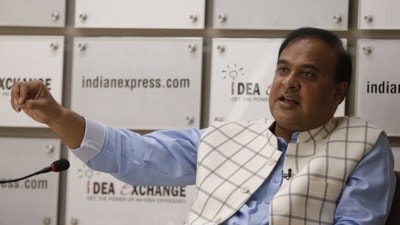Man behind 1984 Sikh riot whitewash defends himself
Justice Ranganath Misra is a picture of disbelief when he reacts to the findings of the Nanavati Commission report on the 1984 anti-Sikh rio...

Justice Ranganath Misra is a picture of disbelief when he reacts to the findings of the Nanavati Commission report on the 1984 anti-Sikh riots. ‘‘It has been 25 years since the incident and I would imagine the evidence is likely to be forgotten. After all, ultimately, the charges are criminal, and evidence is crucial. Twenty five years is a lifetime.’’
Justice Misra, who headed the other probe into the 1984 riots, told The Indian Express today that ‘‘it is improper and prejudicial to name a person in an inquiry commission.’’
Sitting in his room at New Delhi’s India International Centre, Justice Misra is unyielding about the findings and accuracy of his own report. ‘‘My commission was appointed in 1985, a year after the incident. I think the evidence would have been clearer at the time. This is jurisprudence,’’ he points out.
It has been an incredible 25 years for Justice Misra too. After allegations of a whitewash of the then Congress government’s role in the riots, Justice Misra, who was a sitting judge at the time, has had a fruitful two decades hence. After retirement, he then went on to become head of the National Human Rights Commission, then he was a Congress Rajya Sabha MP for four years, and is still working today, as the newly appointed chairperson of the National Commission for Linguistic and Religious Minorities.
Justice Misra, however, is unyielding about the findings of his commission, ‘‘Unlike the 20 points referred to the Nanavati Commission, I had two issues before me. To find out what happened on October 31, 1984, and subsequently, on November 1, 2, and 3. And two, how to stop the recurrence of such incidents. My terms of reference was to find out what happened, not to investigate and give a verdict.’’
He is satisfied he was able to give a positive report. ‘‘I did come to some positive findings: the entire Sikh community was not to blame for the assassination and to indict them as a community is wrong. It was also crucial to find out who were the people behind the murderous act.’’
Justice Misra insists the riots were not organised by any political party. ‘‘How can you say the riots were pre-meditated. Nobody apprehended Indira Gandhi’s murder, no one could have organised the loot and murder of so many thousands of people. A serious thing (assassination) happened, a serious reaction came. It was a frenzy.’’
On the Congress’s alleged role, Justice Misra says, ‘‘I was not called to give a finding on the party’s role. However, how can you call a political party a murderer. The Congress is a big party, how can you tell which man on the street is a member of the party?’’
Would he accept the Prime Minister’s apology to the nation, calling the riots a ‘‘national shame’’ as an acknowledgement of the Congress’ crime? ‘‘I do not want to refer to anything which is political,’’ says Justice Misra.
He is equally pointed when denying accusations by citizen’s groups of him seeking errors in the affidavits submitted by victims rather than looking into them and, for protecting political leaders.
‘‘An affidavit has to be able to withstand the scrutiny of a cross-examination. As head of a commission, I believe that by accusing people, you are prejudicing the person in a criminal court. I was a sitting judge at the time, and it would be very difficult for the accused to defend himself as the courts would find it very difficult to overturn my ruling. It is, therefore, improper and prejudicial to name a person in an inquiry commission.’’
It is equally improper for a retired judge to do so in a commission, says Justice Misra.
‘‘It is a criminal court which disposes the case and a commission’s findings could prejudice the case. I believe if there is direct evidence to come, it must be referred to a court, if the matter is good enough for a trial.’’
So, what should a commission’s role be then? ‘‘It should be able to send a case to trial, as soon as possible,’’ says Justice Misra.
And a judge’s role in such a commission. ‘‘A judge is supposed to know when to open his mouth and when to shut it,’’ says an unsparing Justice Misra.



- 01
- 02
- 03
- 04
- 05




























